- Search Please fill out this field.
- Manage Your Subscription
- Give a Gift Subscription
- Newsletters
- Sweepstakes
We independently evaluate all of our recommendations. If you click on links we provide, we may receive compensation.
- Travel Products
- Travel Accessories

The 6 Best Travel First Aid Kits of 2024
Be prepared for any situation with a travel first aid kit that provides plenty of supplies stored in a case that won't squish in your luggage.
Alesandra Dubin is an LA-based lifestyle writer and editor. As a veteran digital journalist, she's covered travel, food, parenting, and more for over 15 years. Her work has appeared in Travel + Leisure, TripSavvy, and countless other online and print outlets. An avid traveler, she often trots the globe with her husband and their twins. Follow her on Instagram and Twitter at @alicedubin. Alesandra holds a master's degree in journalism with an emphasis on cultural reporting and criticism from NYU, and a bachelor's degree from UC Berkeley.
:max_bytes(150000):strip_icc():format(webp)/AlesandraDubin-67615307279641008729cb062b07fd3b-b63952818f6c4ba094f26d0bd29bb11a.jpg)
In This Article
- Our Top Picks
- Tips for Buying
Frequently Asked Questions
- Why Trust T+L
Travel + Leisure / Kristin Kempa
In my early travel years, I took more physical risks: I hiked Yosemite’s Half Dome and the Grand Canyon rim to river to rim. (I’d lost both big toenails by the end of it.) Once, I dislocated my thumb whitewater rafting in Bali in the rain — it was all in great fun.
Now that I’m a parent of twins (and, let’s be honest — now that I’m older and just plain soft), I’m more likely to avail myself of the amenities at a five-star resort than I am to engage in risky physical activities. But small accidents can and do happen all the time. And that’s why — as the daughter of a doctor and a biologist , and a parent to school-aged kids who always get into something — I always travel with some form of first aid kit. For me, it's just a no-brainer.
For expert insight on what to look for in a travel first aid kit and how to pack and maintain them, I spoke with Dr. LouAnn Giangreco, chief medical officer at American Family Care. Based on my research and experience as well as the doctor’s expert advice, I compared various top-selling travel first aid kits, making sure to consider the overall size, number and variety of items, and specific features like waterproofing. These are my favorite travel first aid kits I'll be packing for my upcoming adventures.
Best Overall
Band-aid johnson & johnson all-purpose portable compact first-aid kit.
This kit has a protective hard case and includes a solid range of brand-name products, so you know the quality you can expect.
The plastic case is bulky, making this a better kit for a car trip than a backpacking adventure.
This compact, comprehensive, and ruggedly packaged first aid kit checks all the boxes. I like that it includes brand-name products brands including Band-aid, Neosporin, and Benadryl, so you know what you’re getting (and can assure your bandage will actually stick to your skin). Plus, the streamlined and refillable hard-plastic case is durable so it stands up well to rattling around on road trips or shoved in amid camping gear . (The red packaging also makes it easy to spot in a hurry.) While I wouldn’t travel with this on a plane — I’m a carry-on only type — I’d bring it on road trips or camping trips.
The 160-piece kit includes all the essentials to tend to cuts, scrapes, burns, insect bites — all the usual suspects. It has cleansing wipes, gauze pads, assorted bandages, rolled gauze, antibiotic cream, itch cream, acetaminophen, an instant cold pack, gloves, and more. There’s also a first aid guide included.
The Details: 9.5 x 7 x 3.25 inches | 1 pound | Plastic
Best Waterproof
Adventure medical kits ultralight/watertight .9 first-aid kit.
This kit is super light and watertight, so it’s ideal for performance in extreme conditions.
While this kit is watertight, it should not be fully submerged in water.
This lightweight kit is built for performance; it’s ideal for wet, rugged conditions with a zippered ripstop outer bag and two watertight pouches to protect the contents. This kit contains everything you need for basic wound care, a range of OTC meds (for pain, fever, swelling, and allergies), and a solid collection of additional equipment: gloves, splinter picker forceps, irrigation syringe, safety pins, and a roll of duct tape.
While I’m not a serious hiker or camper anymore, I have plenty of travel uses for a water-tight first aid kit even in the city — like rainy conditions, and even protecting my first aid supplies from from other product spills. I also like that it’s bright yellow, so it’s easy to identify when you need it.
The Details: 9.5 x 7 x 2.5 inches | 10.4 ounces | Silnylon | Waterproof
Best Mini Kit
Coleman all purpose first aid kit.
Although small, this case is mighty: it’s ultralight, but well stocked.
This sleek kit is a must-have for all-purpose travel first aid solutions, but it’s not adequate for more serious hazards.
You can’t expect a full first aid inventory in an itty-bitty kit, but this one does a nice job of balancing a super-streamlined profile with the most key essentials for everyday travel mishaps like small cuts or scrapes. It includes latex-free bandages, antibiotic ointment, antiseptic wipes, and even safety pins.
The kit is housed in a tin case — picture the size of a tin of mints— which is sturdy and crush-resistant. I’d stash this kit not just in my purse, but in each backpack for the whole family. (Redundancy is the key to preparedness, in my experience as both a mom and as a frequent traveler.) It's also the perfect size to tuck into a bike bag for any potential road mishaps. And the small kit comes with a reasonably small price point, too.
The Details: 0.88 x 2.5 x 3.88 inches | 1 ounce | Tin
Best for Families
American red cross red cross first aid kit.
For its compact size and light weight, this well-stocked kit is nicely equipped for family travel.
Given its soft and lightweight construction, this soft case is not waterproof or rugged.
This 73-piece kit is robust enough for daily first aid, but compact and lightweight enough to travel with when space is at a minimum. It even fits in a bike bag , or in a backpack for day hikes , and slides right into the door compartment of a car.
All of the contents are latex free, so it’s fine to use for people with latex allergies. The soft-pack kit weighs just over 13 ounces and the longest side is just over 9 inches. It includes a range of bandages, ointments, hand sanitizer, aspirin, a CPR mask, a thermometer (for one-time use), gloves, scissors, and tweezers.
The Details: 7.5 x 9 x 2.5 inches | 13.1 ounces | Nylon
Best for Outdoor Use
Hart outdoor weekend first-aid kit.
This well-organized kit has clear compartments for quick access.
This kit has a substantial bulk to it.
This well-stocked kit has enough stuff for three people on a weekend trip. And it’s especially well organized, with clear, labeled pockets and elastic loops. Spacious pockets with hook-and-loop closures make it easy to get everything in and out, and to customize the kit for your use. I also like that the list of the kit’s contents is printed right on the back so you can see what you have (and replace anything you’ve used).
This kit includes medications, wound cleansers, and topical relief products packaged in single-dose packages, plus an array of bandages, gauze, tape, scissors, forceps, and an elastic bandage. And it also includes a plainspoken manual written by a wilderness medicine physician.
The Details: 6.5 x 5.5 x 2 inches | 9.5 ounces | Polyester
Best for Road Trips
Surviveware waterproof premium first aid kit.
This kit is thoroughly stocked in a durable and waterproof case, plus the clear labeling system makes it easy to identify what you need in a crunch-time situation.
The watertight zipper is snug and may require extra effort to open.
Road trips require less streamlined packing than air travels, so this larger 200-piece kit is plenty feasible for the car or RV and comes stocked with all the essentials. Labeled and organized inner compartments make it easy to find what you need at a glance. It includes high-quality versions of the basics of wound and burn care, plus shears, tweezers, splinter probes, and safety pins. It even includes a CPR mask and extra internal sleeves to customize your kit.
Plus, this kit is durable and fully waterproof, with watertight zippers to keep the contents dry; the waterproof feature makes this kit a good match for boaters and severe weather conditions, too).
The Details: 7.5 x 5.5 x 3.5 inches | 2.25 pound | TPU fabric | Waterproof
Tips for Buying a Travel First Aid Kit
Pack the essentials.
The number one thing to include in a first aid kit is bleeding control supplies, according to Dr. Giangreco. Depending on the size of your kit, this would include bandages, compression dressings, tape, and ointment. She also recommends carrying hand sanitizer and gloves whenever you might be in a situation to care for others.
Obviously, smaller travel kits don’t accommodate a comprehensive inventory of supplies. But this is the full list of tools the American Red Cross suggests for a first aid kit for a family of four:
- A first aid guide
- Absorbent compress dressings (5 x 9 inches)
- Adhesive bandages (of assorted sizes)
- Adhesive cloth tape (10 yards x 1 inch)
- Antibiotic ointment packets
- Antiseptic wipe packets
- Emergency blanket
- Breathing barrier (with one-way valve)
- Instant cold compress
- Non-latex gloves
- Hydrocortisone ointment packets
- Gauze roll (roller) bandage
- Roller bandage (4 inches wide)
- Sterile gauze pads
- A thermometer (non-mercury/non-glass)
- Triangular bandages
Don’t forget to refill before every trip
If you’ve used any items from your first aid kit, don’t forget to replace them before your next trip. You should also check expiration dates periodically and replace any expired items. Dr. Giangreco recommends noting the printed expiration dates on supplies such as medications and setting a calendar alert to replace them about a month before they expire. She also suggests opening your kit and checking your supplies before each trip in case any of the contents have been water damaged or affected by temperature variations.
Customize your first aid kit
You should customize your kit with any personal medicines for your group’s specific needs. For instance, if you are allergic to bees, include an EpiPen. If you’re diabetic, include a source of quick sugar. “Think about chronic conditions,” Giangreco says.
Further, she says, customize your kit to your particular activities and potential hazards. “If there’s a risk of extremity injury, think about things like Ace wraps or splints,” she says. “My daughter is a ski racer — and skis have sharp edges, so they carry tourniquets . Or if you're diving, you may want to think about things like hot packs to denature stings or forceps tweezers to be able to remove spines.”
Make sure you have the training to use your supplies
The items in your kit are only valuable in an emergency if you know how to use them, so make sure you’re first aid trained, Giangreco says. "Take a Stop the Bleed course, learn CPR, learn how to use an AED, and then you'll be better prepared," she added.
Yes, TSA allows first aid kits and supplies. However, some specific rules apply. For instance, TSA allows larger amounts of medically necessary liquids, gels, and aerosols in reasonable quantities for your trip, but you must declare them to the officers at the checkpoint to be inspected. Be sure to take a look at TSA's list of authorized medical supplies before heading to the airport.
You should carry a first aid kit just about everywhere you go, even if you’re just exploring around an urban environment with plenty of resources. “[Then] you’re not trying to chase down a gift shop or pharmacy,” Giangreco says — or overpay enormously for convenience.
You should always carry any necessary medications in your carry-on or personal item bag, in case your luggage is lost, damaged, or delayed. Keep medicines in their original containers labeled with your full name, health care provider's name, generic and brand name, and dosage, according to the CDC’s guidelines .
Why Trust Travel + Leisure?
Alesandra Dubin used her experience as a travel and lifestyle writer and professional product reviewer, as well as research, to highlight the best first aid kits for travel. As a frequent traveler and mom to 9-year-old twins, she regularly encounters minor injuries and discomforts on the road, and always travels with first aid supplies to cover her family’s needs. She also spoke with Dr. LouAnn Giangreco, chief medical officer at American Family Care , to gather the best tips for keeping safe and healthy while traveling.
Love a great deal? Sign up for our T+L Recommends newsletter and we'll send you our favorite travel products each week.
:max_bytes(150000):strip_icc():format(webp)/TaylorFoxHeadshot-7375be27aedf4b0ea0e0189a4befe7d0.jpeg)
Related Articles
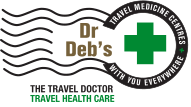
Our Address
5th Floor, 247 Adelaide St, Brisbane

- 07 3221 9066
- Our Location
- Clinic Access
- Before You Travel
- Existing Patients
- About Dr Deb
- Make an Appointment
We have surveyed travellers, so we KNOW what is likely to happen, and what you are likely to need while you are away. Many travellers are aware of travellers diarrhoea or gastro, but that is not the only thing that can happen while travelling; For example, statistics show that 28% of travellers catch a respiratory tract infection
As with your vaccinations, our clinic tailors the medications we recommend to suit your specific destination, your length of stay and your medical history.
Our travel doctors can help you determine the necessary medication to have on hand in case you get sick. Our staff can supply a zipped Travel Medicine kit bag to make a kit look more ‘official’, a letter of authority to carry these medications through customs, and easy-to-follow, step-by-step instructions that tell you exactly what to take and when.
The contents of the travellers medical kits include prescription medication and travellers will need to consult a doctor to make sure the medications are appropriate for their personal health situation.
You cannot fill Australian scripts overseas
Video on how to treat travellers diarrhoea
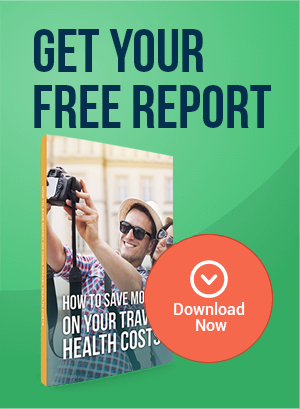
Recent Blog Posts

Understanding Japanese Encephalitis: A Travel Health Advisory
Dengue - Day biting Mosquitoes
Flu strains 2024 South are 2/3 same and Northern hemisphere
About Dr. Deb
Dr Deb Mills has a passion for medicine and travel. She is the medical director of Dr Deb THE Travel Doctor, and has been working in travel medicine for over 25 years. She is one of the pioneers of Travel Medicine in Australia. This means she and her team have the expertise necessary to ensure you get the best travel medicine care possible. For more Travel health advice and to obtain your vaccines before you travel, visit our travel clinic in Brisbane.
Quick Links

© 2024 Dr. Deb’s | All Rights Reserved | Privacy Policy | Website Terms and Conditions | Governing policy | Sitemap
Supervised ART (Tele-ART) for pre-event testing Book Now

- Video call a Doctor
- Child Health GP
- Weight Management
- Birth Control
- Erectile Dysfunction
- Smoking Cessation
- GP Referral
- Meet our Doctors
- See a Specialist Online
- Mental Wellness
- Nutrition & Fitness
- Adult Vaccination
- Child Vaccination
- Senior Vaccinations
- Flu Vaccination
- CHAS Vaccinations
- Health Screenings
- 6ME Health Check
- Home Care Services
- Care Coordinator
- Healthier SG
- Shop DA Marketplace
- DA Healthwise plans
- Women’s Health
- Men’s Health
- Travel Health
- DA Wellness Concierge
- Corporate Services
- Employee Benefits
- Corporate Health Screenings & Vaccinations
- Pre-employment Screening
- Workplace Wellness
- Corporate Login

6 Must-Haves For Your Travel Medical Kit

No one wants to fall ill when they’re travelling — but it’s always good to be prepared in case of emergencies. A solid travel medical kit can help prevent your symptoms from getting worse and can also save you the hassle of figuring out how to get medical attention in a foreign country.
Here are a few must-haves you should have whenever you’re travelling.
1. Painkillers
Painkillers, such as paracetamol, can provide effective relief for mild to moderate pain caused by headaches, migraines and even menstrual cramps. Of course, if the pain increases in intensity or persists over a longer period of time, you may want to consider seeing a doctor for a better assessment and treatment of your condition.
2. Cold & Flu Medication
The flu is a contagious virus that spreads when an infected person coughs, sneezes or speaks. As such, it’s good to add some medication that can help you to manage any flu symptoms, if you’ve caught the bug. This includes paracetamol for a fever or (honey-lemon) lozenges for dry throats.
If you have the time, one of the best ways to protect yourself against the flu — whether you’re travelling or in Singapore — is to get your annual flu vaccination . The vaccination takes about 2 weeks to take effect, so you’ll have to buffer some time before your trip for the vaccination appointment.
3. Antihistamines
If you suffer from allergies , antihistamines are useful for keeping your symptoms controlled, especially if you’re going to be exposed to exotic plants and animals. Antihistamines help to prevent allergic rhinitis and other allergies which can cause symptoms blocked nose, sneezing or skin rash.
4. Motion Sickness Meds
If you tend to feel nauseous on a plane, boat or long road trips, be sure to bring some motion sickness pills along with you. This can help to prevent dizziness, nausea, vomiting and fatigue, so that you feel more comfortable when you’re heading to your next destination.
5. Diarrhoea Meds
Traveller’s diarrhoea is probably one of the most common illnesses when you’re on holiday, particularly when you’re excited to try new foods and drinks. There are medications that can treat diarrhoea and help prevent frequent (and unpleasant) trips to the bathroom, as well as help to improve your gut health .
6. Wound Care
Apart from falling ill, cuts and scrapes are potential ways you may get hurt when you’re on holiday.
Your wound care kit should include items such as antiseptic solutions, plasters, bandages and other kinds of wound dressings, as well as bandage tape and alcohol wipes. You’ll never know when you’ll get into little accidents along the way, especially if your holiday involves sport or adventure activities.
With these basics covered, you should be ready for most emergencies when you’re oveseas. Put together your travel medical kit with the range of OTC medication on DA Marketplace (plus free delivery to your home). If you’ve additional questions about travel health, speak to a doctor anytime on the DA app .
Happy travelling!

You are using an outdated browser. Upgrade your browser today or install Google Chrome Frame to better experience this site.
Use this checklist to prepare for your next trip abroad. Make sure to bring items with you, since quality of items bought overseas cannot be guaranteed. Not all of these items may be relevant to you and your travel plans.
Pack for a Healthy Trip
Prescription medicines
- Your prescriptions
- Travelers’ diarrhea antibiotic
- Medicines to prevent malaria
Medical supplies
- Glasses and contacts
- Medical alert bracelet or necklace
- Diabetes testing supplies
Over-the-counter medicines
- Diarrhea medicine (Imodium or Pepto-Bismol)
- Antihistamine
- Motion sickness medicine
- Cough drops, cough suppressant, or expectorant
- Decongestant
- Pain and fever medicine (acetaminophen, aspirin, or ibuprofen)
- Mild laxative
- Mild sedative or sleep aid
Supplies to prevent illness or injury
- Hand sanitizer (containing at least 60% alcohol) or antibacterial hand wipes
- Water purification tablets
- Insect repellent (with an active ingredient like DEET or picaridin)
- Sunscreen (with UVA and UVB protection, SPF 15 or higher)
- Sunglasses and hat
First-aid kit
- 1% hydrocortisone cream
- Antibacterial or antifungal ointments
- Digital thermometer
- Oral rehydration salts
- Antiseptic wound cleaner
- Aloe gel for sunburns
- Insect bite anti-itch gel or cream
- Disposable gloves
- Cotton swabs (Q-Tips)
- Copies of your passport and travel documents
- Copies of all prescriptions (medications, glasses, or medical supplies)
- Health insurance card and documents
- Proof of yellow fever vaccination (if required for your trip)
- Contact card with the street addresses, phone numbers, and e-mail addresses of: Family member or close contact in the United States
- Health care provider(s) at home
- Lodging at your destination
- Hospitals or clinics (including emergency services) in your destination
- US embassy or consulate in the destination country or countries
Additional Resources
- Check the Transportation Security Administration website for updates on permitted and prohibited items, including medicines that you are allowed to carry onto an airplane.
- Some items may not be allowed in other countries. It is a good idea to check the Customs and Import Restrictions section of the U.S. Department of State Tips for Traveling Abroad.
- Enroll in the Department of State Smart Traveler Enrollment Program to get the latest safety updates and help in an emergency.
File Formats Help:
- Adobe PDF file
- Microsoft PowerPoint file
- Microsoft Word file
- Microsoft Excel file
- Audio/Video file
- Apple Quicktime file
- RealPlayer file
- Zip Archive file
Exit Notification / Disclaimer Policy
- The Centers for Disease Control and Prevention (CDC) cannot attest to the accuracy of a non-federal website.
- Linking to a non-federal website does not constitute an endorsement by CDC or any of its employees of the sponsors or the information and products presented on the website.
- You will be subject to the destination website's privacy policy when you follow the link.
- CDC is not responsible for Section 508 compliance (accessibility) on other federal or private website.
- Skip to main content
- Skip to site information

Language selection
Help us to improve our website. Take our survey !
Travel health kit
Why should i take a health kit when travelling.
A basic travel health kit is important no matter where you travel. First aid supplies and medications may not always be readily available in other countries or may be different from those available in Canada.
A good travel health kit contains enough supplies to prevent illness, handle minor injuries and illnesses, and manage pre-existing medical conditions for longer than the duration of your trip.
What should I pack in my travel health kit?
Basic first aid items.
It is essential to know how and when to use the first aid supplies in your kit. You may consider taking a first aid course before you travel.
You may want to include:
- Adhesive bandages (multiple sizes) and adhesive tape
- Alcohol-based hand sanitizer
- Antiseptic wound cleanser (for example, alcohol or iodine pads)
- Blister pads or moleskin
- Disposable latex or vinyl gloves
- Packets of oral rehydration salts
- Safety pins and scissors
- Tensor bandages for sprains
- Thermometer
- Tweezers for removing ticks, splinters etc.
Travelling with medications
Discuss the use of medications with your health care provider before departure and carefully follow the directions for use, including dosage and when to seek medical care. Bring more than enough medication to last your entire trip . Consult our Travelling with medications and What you can bring on a plane pages for more information.
Here is a basic list of medications to be included in your travel health kit:
- Any prescription or over-the-counter medication you normally use
- 1% hydrocortisone cream to treat minor skin irritation, such as itching caused by bug bites or poison ivy
- Allergy medication, such as an antihistamine, or epinephrine prescribed by your doctor, such as an Epinephrine auto-injector (EpiPen®)
- Anti-diarrheal medication
- Anti-motion sickness medication
- Antifungal and antibacterial ointments or creams to apply to wounds to prevent infection.
- Cold and flu medications, such as decongestants, cough suppressants or throat lozenges
- Pain and fever medication, such as acetylsalicylic acid (e.g., Aspirin®), ibuprofen (e.g., Advil®), or acetaminophen (e.g., Tylenol®)
- Stomach and intestinal medication, such as antacids and laxatives
- If recommended, destination-specific medication, like those for malaria or high-altitude sickness
- If you need to use needles or syringes, take more than enough to last for your entire trip and carry a medical certificate from your health care provider explaining that the needles or syringes are for medical use.
Other items
You may include these items depending on personal preference, destination, and activities:
- Aloe gel for sunburns
- Adequate supply of condoms
- Ear plugs to reduce noise or stop contaminated water from entering the ear canal
- Extra pair of glasses or contacts (or a copy of your prescription)
- Insect repellent containing DEET or Icaridin
- Mosquito net
- Saline eye drops
- Water purification filter or tablets
Contact card
Carry a card with the following information in case of a medical emergency:
- Name, address, and phone number of a family member or friend in Canada
- Name and phone number of your health care provider in Canada
- Address and phone number of your accommodations at your destination(s)
- Address and phone number of hospitals or clinics at your destination(s)
- Address and phone number of the Canadian Embassy, Consulate, or High Commission in your destination country/countries (you might also consider carrying the Emergency Contact Card )
- Emergency contact phone number from your travel health insurance provider
Before you go, don’t forget to register with the Registration of Canadians Abroad service and stay connected to Canada in case of an emergency abroad or at home.
Proof of your insurance coverage
Always carry proof of your health insurance coverage when travelling. Consult our page on travel insurance for more information.
Immunization record
Carry a copy of your immunization record in your travel health kit. Include your original International Certificate of Vaccination or Prophylaxis for yellow fever, if you have one.
For a printer-friendly travel health kit checklist, click here .
- Sickness or injury
- Insect bite prevention
- Travelling with medication
- Receiving medical care outside Canada
- Travel insurance
- Vaccination
- What you can bring on a plane
- Tips for healthy travel
Travel Medicine
The hospitals and clinics of Hawaii Pacific Health are in a unique position to deliver world-class travel medicine, as our islands serve as a gateway to so many countries around the world.
Our experts are up-to-date on current health risks around the globe to make sure that all travelers are well prepared for a safe and healthy trip. For those who come home sick, we are here with expert diagnosis and treatment.
Travel Medicine at Straub
Travel Medicine on Oahu
Straub has physicians who are members of the International Society of Travel Medicine and available to discuss travel concerns with patients. There are well-established preventive measures for almost every health issue that falls under the scope of Travel Medicine. Vaccinations, for example, can help to immunize a traveler against certain common diseases in the country of destination.
Our travel medicine physicians offer a variety of immunizations, including:
- Hepatitis A
- Hepatitis B
- Yellow Fever
- Meningococcal
- Japanese Encephalitis
- Chicken Pox
- Hemophitus B Influenza
It is recommended patients receive their necessary travel vaccinations as soon as their itinerary is planned in order to provide the greatest number of vaccination options as well as allowing time for any series of vaccinations issued. Children under 18 should be seen by their pediatrician for any travel immunizations.
Insurance coverage varies according to each patient's plan. We recommend that you check with your insurance carrier.
Straub Travel Clinic: 1-808-529-4949
This service is available at: Straub Wilcox
Visitors to Hawaii Hawaii is a paradise known for the sun, the sea, and all things natural. To make sure your stay goes well, be respectful of the power of these natural forces to avoid injury and illness.
Helpful Tips:
- In Hawaii, ocean safety is very important. If advised not to swim — don't. Heed the international signage at local beaches alerting you to rough sea conditions, rip currents, jellyfish and high surf.
- When hiking the wilderness, be sure to check in with park rangers first. It's not uncommon to get lost in an unfamiliar environment. And make sure to wear appropriate footwear at all times.
- A word of caution about the sunshine: it is much stronger than many visitors are accustomed to on the mainland. Use sunscreen and reapply liberally all day long. Protect children with sunblock containing zinc oxide or the latest in "sun suits" that block harmful rays. Hats and sunglasses are also a must.
Hawaii Residents Planning to Travel Overseas Planning a trip overseas? Travelers need to be aware of the health risks unique to their destination. Some countries have problems maintaining a sanitary water supply. Other countries have diseases that Americans may not normally be exposed to. You should plan ahead before international travel to prevent health problems before they occur, so you can have a fun and safe trip.
Here are some steps you can take to prepare for your trip:
- Educate yourself about the health risks in the country you are visiting. What are common diseases? How can you protect yourself from insect bites? Your travel medicine doctor will have educational material that will prepare you for your trip and your destination.
- Immunize yourself to those diseases found in that country. Your travel medicine doctor will have access to all the current diseases and outbreaks in various areas of the world and will advise you accordingly. Plan to seek advice four to six weeks before you depart on your trip to allow adequate time for immunization. This immunization process may take a few weeks, so it is important to allow your body time to adjust before you travel.
- Have fun while visiting your destination, but be cautious. Unlike the U.S., many foreign governments do not regulate the safety of boats, equipment and vehicles. In addition, travelers are advised to check with their Personal Care Physician (PCP) if they have health problems prior to traveling. It is recommended that travelers carry a note stating any significant medical condition, list of medications currently being taken, any allergies, and the name and phone number of an emergency contact person and their treating physician. Also, carry sufficient quantities of your prescription medication and a first aid kit. The first aid kit should include over-the-counter medication such as Aspirin or Tylenol, sun block, antihistamine, antibiotic ointment, Band-Aids, anti-diarrhea and calamine lotion.
Public health agencies, such as the Centers for Disease Control (CDC) and the World Health Organization (WHO), have set up guidelines and health information for the international traveler and can provide general health information about your destination.
Helpful Links:
- Center for Disease Control (CDC)
- Hawaii Convention and Visitor’s Bureau
- Kauai Visitors Bureau
Find a Physician
Find a physician to suit your needs.
or call 1 808-643-4DOC (4362)
For General Information
Oahu 1 808 949 WELL (9355)
Toll-free 1 877 709 WELL (9355)
Online Contact Us
Click here to see up-to-date Straub Walk-In Clinic hours for locations near you.
FOR THE TRAVELER
A library of free resources, tools and information for safe travel.
Travel Health Advice | About Us | Prepare for Travel | Stay Healthy During Travel | Newsletter
Travelers’ Rapid Health Information Portal
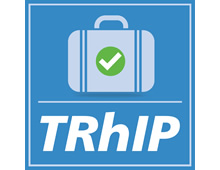
Heading Home Healthy
Heading Home Healthy is a free program that provides resources to help travelers stay healthy when they are returning home to visit friends and relatives.

Healthy Travel Checklist
A video about how to prepare for a healthy international trip.

See a Healthcare Provider

Are you in New York City?
Heading Home Healthy Safety Flyers
Travel Health Kit
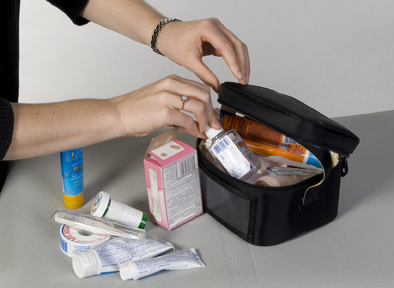
Malaria: One Family's Story
A family's story about Malaria, including the impact of the infection and how to prevent it.

Malaria Stories: Importance of antimalarial medication
Richard Oni, PhD, Progressive Individual Resources Inc, shares his experience with malaria after traveling to visit friends and relatives back home in Nigeria. Watch Dr. Oni’s full story: https://youtu.be/2we10pqzbNY

Enter your email address to subscribe to our monthly newsletter.
View this month's Travel Health Newsletter .
Traveling Abroad While Pregnant: 24-Week Cutoff
- Last updated Jun 25, 2024
- Difficulty Intemediate
- Category Travel

Travelling while 24 weeks pregnant comes with some considerations. While most airlines will allow pregnant women to fly up to 36 weeks, some have an earlier cut-off. It's important to check the airline's policy before booking. Cruises may not allow travel after 24-28 weeks and may require a note from your doctor stating you are fit to travel. When travelling by air, it's a good idea to get up and stretch frequently and stay hydrated. It's also recommended to check that your travel insurance will cover your costs if you go into labour and that it will cover the costs of your baby if they need special care.
What You'll Learn
Consult travel advisories and health information for your destination, discuss travel with your doctor and get any necessary vaccines, make sure you have the right travel insurance, check airline policies for pregnant women, prepare a travel health kit.

Before travelling, it is important to consult travel advisories and health information for your destination. This will help you make informed decisions and stay safe during your trip. Here are some reasons why you should consult travel advisories and health information:
Safety and Security Conditions:
The safety and security situation in your chosen destination can vary and may change unexpectedly. By regularly checking travel advisories, you can stay informed about any potential risks, such as political unrest, natural disasters, or health emergencies. This information will enable you to make informed decisions about your travel plans and help you avoid potentially dangerous areas.
Health Risks and Recommendations:
Different destinations may have specific health risks that travellers should be aware of. For example, some regions may have infectious diseases, food and water safety concerns, or increased exposure to certain medical conditions. By consulting health information, you can learn about recommended vaccinations, precautions to take, and how to protect your health and well-being during your trip.
Travel Requirements and Restrictions:
Travel advisories provide essential information on entry and exit requirements, including passport, visa, and customs regulations. They also inform travellers about any travel warnings or restrictions that may be in place, such as avoiding non-essential travel to certain areas due to safety concerns. By staying informed, you can ensure you meet the necessary requirements for your trip and avoid unexpected issues.
Local Laws and Customs:
Understanding the local laws, customs, and cultural practices of your destination is crucial. Travel advisories can provide insights into legal and cultural differences, helping you navigate your interactions with locals and authorities respectfully and safely.
Emergency Preparedness:
In the event of an emergency, travel advisories and health information can guide you on how to seek assistance. Knowing the location of nearby embassies and consulates can be crucial during unexpected situations. Additionally, understanding the local emergency response system and any relevant insurance procedures can provide valuable peace of mind.
Destination-Specific Information:
Travel advisories offer detailed insights into specific destinations, including transportation safety, driving regulations, and local events or gatherings that may impact your trip. This information empowers you to make informed choices and effectively navigate your surroundings.
Remember to consult official government sources, such as the Centers for Disease Control and Prevention (CDC) and other reputable organisations, for the most accurate and up-to-date travel advisories and health information. Staying informed will help ensure that your trip is not only enjoyable but also safe and secure.
Easter Weekend: Roads Busy?
You may want to see also
It is important to discuss your travel plans with your doctor, nurse, midwife or obstetrician before booking your trip and well in advance of your departure date. They will be able to advise you on any necessary vaccines and precautions to take during your trip.
Pregnancy creates an altered state of health that requires practical considerations before travel. Hormone fluctuations and the psychological impact of pregnancy can affect your ability to cope with the stress of travel. Therefore, it is worth considering whether you will have access to sufficient emotional and physical support during your journey.
Many diseases have more severe consequences during pregnancy, significantly risking the health of both mother and unborn baby. For example, malaria during pregnancy is harmful to both mother and baby, increasing the risk of severe illness or death for both. Consequently, it is recommended to avoid all non-essential travel to tropical destinations during pregnancy, especially those with a risk of diseases such as malaria, Zika virus or yellow fever.
The Zika virus, spread by mosquitoes, is present in parts of South and Central America. The association between the Zika virus infection and birth defects means that non-essential travel to areas with a high risk of Zika virus transmission should be avoided by pregnant women or those planning to become pregnant.
If you are travelling to an area where there is a risk of malaria, it is important to seek expert advice. Your GP may refer you to a specialist travel medicine service. Mosquito bite avoidance is essential in the prevention of malaria. Pregnant women are more attractive to mosquitoes and should be particularly careful to avoid being bitten.
If antimalarial tablets are recommended, seek expert advice on the safest option for you. The choice of medication will depend on your destination, stage of pregnancy and any other pre-existing medical conditions.
Some vaccines are recommended during pregnancy to protect your health and that of your baby. For example, the inactivated seasonal flu vaccine and the whooping cough vaccine. An inactivated vaccine does not contain a live version of the virus it is protecting against and therefore cannot cause disease in either the mother or the baby.
However, live vaccines are usually avoided during pregnancy due to the potential risk of infecting the unborn baby. Live vaccines include the MMR (measles, mumps and rubella) vaccine and the yellow fever vaccine. Nevertheless, a live vaccine may be used during pregnancy if the risk of infection is greater than the risk of the vaccination. Your midwife, GP or pharmacist can provide advice on the risks and benefits of any vaccinations you may need.
The Duration of Travel Days for PCS from CONUS to OCONUS
When it comes to travel insurance, it's important to ensure you have the right cover for your trip at 24 weeks pregnant. Here are some key considerations:
Understand What's Covered and What's Not
Pregnancy is not typically considered a pre-existing medical condition by insurers, so you don't need to declare it before purchasing travel insurance. However, it's crucial to carefully read the policy booklet and understand the specific coverage definitions and restrictions. Some policies may only cover complications of pregnancy and childbirth, excluding routine medical care, natural labour, and childbirth after a certain week of pregnancy. There might also be time restrictions, such as coverage for complications associated with premature birth only within the first 32 weeks.
Declare Any Medical Conditions Related to Your Pregnancy
While pregnancy itself may not be a factor, it's essential to disclose any medical conditions associated with your pregnancy, such as gestational diabetes or high blood pressure. Failure to do so may result in a lack of coverage if you need medical assistance related to these conditions during your trip.
Understand the Coverage for Pregnancy Complications
Travel insurance can provide coverage for unforeseen pregnancy complications, such as pre-eclampsia or hyperemesis gravidarum. If you need to cancel or interrupt your trip due to these complications, your travel insurance may reimburse you for non-refundable trip costs. However, a normal pregnancy without any diagnosed complications is typically not covered for trip cancellation.
Check the Coverage Period for Pregnancy
Some travel insurance policies may only cover you up to a certain week of your pregnancy, such as 38 weeks for a single pregnancy or 32 weeks for twins. Ensure you understand the coverage period and choose a policy that aligns with your travel plans.
Consider the Cost of Emergency Medical Care
While travel insurance may not cover the cost of a routine birth overseas, it is designed to cover emergency medical treatment and repatriation. This can be crucial if you experience pregnancy-related medical complications while abroad.
Understand the Airline's Requirements
Different airlines have varying restrictions and requirements for pregnant travellers. Some may require a doctor's letter confirming your fitness to fly after a certain week of pregnancy, while others may have more stringent rules. Understanding these requirements will help you choose a suitable travel insurance policy and ensure a smooth travel experience.
Unraveling the Secrets: Does Ayaka Have Feelings for the Traveler?
When it comes to flying while pregnant, each airline has its own set of rules and restrictions. It is important to check the policies of the specific airline you are planning to fly with, as they may vary significantly. Here are some examples of airline policies for pregnant women:
According to Air Canada, pregnant women can only fly up to four weeks before their due date, with no exceptions. A note from a physician is required for travel within this time frame.
Air France does not require pregnant women to carry a medical certificate for travel during pregnancy. However, they recommend avoiding travel in the final month of pregnancy and during the first seven days after delivery. They also suggest that expecting mothers seek their doctor's opinion before travelling.
American Airlines
American Airlines has different rules for international and domestic flights. For domestic flights, travelling within seven days of your due date is prohibited unless you have a doctor's note and fill out a passenger medical form. On international flights, the same documents are required up to four weeks before your due date and must be completed 48 hours before takeoff.
British Airways
British Airways does not permit pregnant women to fly after the 36th week of pregnancy if expecting one baby or after the 32nd week if expecting more than one. They recommend that all expecting mothers carry a confirmation letter or certificate from a doctor or midwife, along with their pregnancy record.
Delta Airlines
Delta Airlines does not impose any restrictions on flying for pregnant women, so a medical certificate is not required. However, they will not waive ticket change fees and penalties for pregnancy-related changes. They suggest that those flying after their eighth month consult with their doctor to ensure travel is safe.
Southwest Airlines
While Southwest Airlines has no restrictions on pregnant passengers, they may be asked to refrain from sitting in the emergency exit row.
United Airlines
United Airlines requires a medical certificate and two copies for passengers at or after 36 weeks of pregnancy. The letter must be dated within 72 hours of flight departure.
Virgin Atlantic
Virgin Atlantic allows travel without restrictions until the 28th week of pregnancy, provided there are no complications. Between the 28th and 36th weeks, a doctor's or midwife's certificate is required, stating that the passenger is safe to travel and confirming the expected due date. After the 36th week, travel is only permitted for medical or compassionate reasons and with the approval of a Virgin Atlantic doctor.
General Recommendations
When flying while pregnant, it is generally recommended to:
- Consult your physician before booking your flight.
- Wear compression stockings to promote blood circulation and prevent swelling.
- Stay hydrated by drinking plenty of water before, during, and after the flight.
- Book a bulkhead or aisle seat for more comfort and easy access to the lavatories.
- Elevate your legs on a carry-on bag to prevent swelling and cramps.
- Wear loose, comfortable clothing and dress in layers to accommodate changing cabin temperatures.
Exploring New Horizons: Baby Boomers and Adventure Travel
Preparing a travel health kit is an important step when planning a trip, especially if you are pregnant. Here are some detailed instructions and suggestions on how to prepare a comprehensive travel health kit for your trip abroad:
Start by choosing a suitable container for your travel health kit. Opt for a small box or a zip-up bag that is easy to carry and clearly label it as a "Health Kit" or "First Aid Kit". This will make it easily identifiable in case of an emergency.
Basic First-Aid Items:
- Antibacterial wipes: Include wipes that can kill germs and help clean tools and hands effectively.
- Hand sanitizer: Choose a sanitizer containing at least 60% alcohol to disinfect your hands before treating any wounds or cuts.
- Instant cold pack: These disposable packs are excellent for quickly relieving bumps, bruises, and minor burns.
- Pain relievers: Pack medications like acetaminophen or ibuprofen for headaches or sprains. If you have children travelling with you, include a children's formula as well.
- Scissors: You may need scissors to cut gauze, bandages, or open medication packages. Remember to pack these in your checked luggage if you're flying, as they may not be allowed in carry-on bags.
- Self-adhesive wrap: This can be useful for wrapping and supporting sore knees, ankles, or other injuries without needing pins or other tools.
- Thermometer: A reliable thermometer will help you check for fevers. Don't forget to clean it with an antibacterial wipe after each use.
- Tweezers: Tweezers are essential for removing bee stingers, splinters, and ticks.
Essentials for Skin Problems:
- Aloe vera gel: This versatile gel is great for soothing sunburns and irritated skin.
- Antibiotic ointment: Apply this before covering a wound with a bandage to prevent infection.
- Antiseptic spray or wipes: An antiseptic spray or wipes are ideal for cleaning minor cuts and scrapes, ensuring they are free from dirt and germs.
- Bandages: Include a variety of sizes, such as small, medium, and large, to cover different types of wounds.
- Calamine lotion: This can provide relief from poison ivy, hives, and other itchy skin conditions.
- Gauze: Keep both gauze pads and a roll of gauze for larger wounds that require more coverage than a standard bandage.
- Medical tape: Medical tape is necessary to securely attach gauze to the skin.
Medicine for Stomach Issues:
- Antacids: These will help with heartburn or mild indigestion.
- Anti-diarrhea medication: Include remedies for traveller's diarrhea, and consider asking your doctor about a prescription antibiotic if you're travelling to an area where diarrhea is common.
- Laxatives or stool softeners: These can be helpful if you become constipated, but use them cautiously as they can also cause diarrhea or painful cramps.
- Motion sickness medication: Keep a few tablets in your kit, even if you don't typically suffer from motion sickness. Be aware that some types may cause drowsiness.
First Aid for Respiratory Problems:
- Antihistamines: Pack medications like loratadine or diphenhydramine to help with seasonal allergies.
- Cold relief medication: Bring both daytime and nighttime formulas to alleviate symptoms like a stuffy nose, cough, and headache.
- Cough suppressant: This will help you get much-needed rest by reducing the urge to cough.
- Saline nasal spray: Use this to gently clean out your nostrils and find relief from allergies and congestion.
COVID-19-Related Items:
- Hand sanitizer: Carry an unscented hand sanitizer that contains at least 60% alcohol to reduce the spread of COVID-19.
- Extra face masks: Ensure you have a supply of clean face masks to protect yourself and others during your travels.
Pregnancy-Specific Items:
- Prescription medications: If you are taking any prescription medications, be sure to bring enough for your entire trip, and consider packing extras in case of delays.
- Hemorrhoid cream: This can provide relief from hemorrhoids, which are common during pregnancy.
- Antiemetic drugs: These can help with nausea and vomiting.
- Antacids: In addition to helping with heartburn, antacids can also alleviate mild indigestion.
- Prenatal vitamins: Ensure you have a sufficient supply of prenatal vitamins formulated specifically for pregnant women.
- Medication for vaginal infections: Include treatments for vaginitis or yeast infections, as these can occur during travel.
- Support hose: Consider packing support hose or compression stockings to improve circulation and reduce the risk of blood clots, especially if you're flying.
Remember to also include any other items specific to your health needs or those recommended by your healthcare provider. Always consult with your doctor before travelling, especially if you are experiencing a high-risk pregnancy, and ensure you have all the necessary medications and treatments for your journey.
Does Cold Travel Up Metal Like Heat? Exploring the Conductivity of Cold Temperature in Metal
Frequently asked questions.
Most airlines will allow pregnant women to fly up to and including the 36th week of pregnancy. However, some airlines may have an earlier cutoff. It is recommended that you check the airline's policies for pregnant women before booking your flight. You may also need a note from your healthcare provider.
Discuss your travel plans with your healthcare provider, as you may need vaccinations or other medications, depending on your destination. Ensure that your travel insurance covers pregnancy-related complications and the costs of your baby if they need special care. Bring a copy of your prenatal record in case you need to seek care while away from home.
Yes, pregnant travelers should avoid destinations with a risk of Zika and malaria. Zika can cause severe birth defects, and malaria increases the risk of serious pregnancy complications. If you must travel to an area with Zika or malaria, be sure to take the necessary precautions to protect yourself from mosquito bites and speak to your doctor about any required medications.

- Cagri Burak Author Reviewer Traveller

- Melissa Carey Author Reviewer Traveller
It is awesome. Thank you for your feedback!
We are sorry. Plesae let us know what went wrong?
We will update our content. Thank you for your feedback!
Leave a comment
Travel photos, related posts.
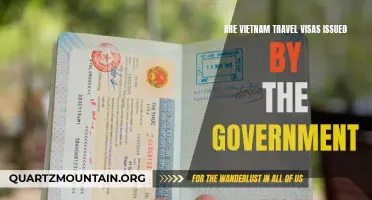
Exploring the Process of Government-Issued Vietnam Travel Visas
- Mar 14, 2024

Exploring the Sunshine State: Embrace the Warmth and Beauty of Tampa, Florida
- May 13, 2024

Is It Safe to Travel to America Amid the Current Situation?
- May 22, 2024

Finding Traveller Cheques by Sequence Number: Is it Possible?
- May 31, 2024

Travel Abroad After Filing I-140: Is It Possible?
- Jun 24, 2024

The Best Time to Avoid Traveling While Pregnant
- May 15, 2024
Expedia Rewards is now One Key™
Cheap flights to perm.
Add a place to stay
Direct flights only
Featured airlines

- trending down icon Be in the know Get alerts if flight prices drop or rise*
- bex rewards loyalty icon Book smarter Save up to 30% on select hotels after you book a flight*
- one key icon Earn twice Earn your airline miles on top of our OneKeyCash Learn about One Key
Find Your Flights to Perm PEE
Cheap flights to Perm ( PEE)
Get started finding a cheap flight to Perm on Expedia by either choosing a deal on this page or entering into the search bar your travel dates, origin airport, and whether you want roundtrip or one-way airfare. You can filter for flexibility, number of stops, airline, and departure/arrival times to find the best flight for you.
We recommend using the ‘Flexible Dates’ calendar at the top of the page to see the price of plane tickets on the surrounding dates. This allows you to pick the cheapest days to fly if your trip allows flexibility and score cheap flight deals to Perm.
Roundtrip prices range from - , and one-ways to Perm start as low as .
Be aware that choosing a non-stop flight can sometimes be more expensive while saving you time. And routes with connections may be available at a cheaper rate.
Airlines that fly to Perm ( PEE)
You have several options for which airline you choose to travel with to Perm. There are airlines flying into PEE: .
Cheap plane tickets may be available from different airlines at different times and with unique terms. It’s best to understand the details of each airline’s offer before judging its value.
For example, if you plan to check a bag or bring a carry-on, check whether the cheap airfare deal includes a baggage allowance. If not, verify whether the baggage fee is higher than the difference of other airline plane ticket deals offering free checked/carry-on baggage in exchange for a slightly higher airfare.
Additionally, your preferred frequent flyer membership programs may influence your choice of cheap airline. Expedia allows you to enter your membership numbers during checkout to earn points from your airline and Expedia Rewards—all while getting a great deal and planning all your travel in one online platform.
Find the best deals
At Expedia, we source many flight deals from multiple providers, so you can easily find the best deals that are right for you. A great strategy for getting the best deals can be to make sure you book and travel at the optimal times. Airfare to Perm (PEE) varies throughout the year based on seasonal demand. You’ll see the lowest rates for roundtrips to PEE in and in for one-ways.
Cancellation & flexibility
To change or cancel eligible flights, go to ‘My Trips’ and navigate to your itinerary. If you booked within the last 24-hours, you might be able to cancel your flight for free. Learn more about flight changes or cancellations from our customer service portal . Some plane tickets are available with no change fees, which you can filter for during your search.
Frequently asked questions
- Air travel can be easy if you take the right gear. Firstly, you’ll need toiletry items, such as deodorant and a toothbrush, a fresh set of clothes and a magazine or two. Secondly, make room in your carry-on bag for your phone and charger, any daily medications and maybe a quality neck pillow as well. Lastly, and most importantly, don’t forget to bring your passport, travel docs and your credit cards.
- Pack all your full-sized bottles of shampoo and hair gel in your checked luggage. Any liquids in your carry-on bag larger than 3.4 ounces (100 milliliters) will be confiscated by authorities. Sharp objects, like your trusty pocket knife, and dangerous goods which are explosive or flammable, such as aerosol cans, flares and poisons, are also prohibited.
- Your aim here is to make yourself as comfortable as you can. Layer yourself up in natural-fiber clothing and bring a pullover in case it gets cool in the cabin. Opt for roomy, flat shoes as it’s possible that your feet and ankles will swell during the journey. Leave the stilettos and hiking boots in your main luggage.
- Most travelers are aware of DVT (deep vein thrombosis), a blood clot condition caused by long periods of sitting. There’s lots you can do to lower your risk. Wear a pair of compression socks, stay hydrated and keep your legs and feet moving. Walk the aisles of the cabin or perform some stretches in your seat.
- Be sure to keep your ID and travel documents handy. They’ll be the first things you’ll be asked to show at security.
- The X-ray machine comes next. Empty your pockets and remove anything metal that is likely to set off the alarm. This includes things like earphones or headphones, as well as heavy coats or jackets. They’ll all need to go on the X-ray conveyor belt.
- All your electronic devices, including your laptop and phone, will also need to be scanned.
- Don’t forget to remove liquids and gels from your carry-on luggage. They often need to be sent through the X-ray scanner separately. Each item should be no larger than 3.4 ounces (100 milliliters) and everything must fit in a quart-size (one liter), clear zip-close bag.
- There’s a chance you’ll be asked to remove your shoes for scanning, so wearing slip-on shoes is always a wise idea.
- Sharp items are not allowed on board. They’ll be confiscated at security, so put them in your checked bags.
Get up to 100% off your flight to Perm when booking a Flight + Hotel
- Top Flights Destinations
More Popular Airlines
- Expedia's Latest Trends
Top Flight Destinations
- Flights to Moscow
- Flights to St. Petersburg
- Flights to Yakutsk
- Flights to Vladivostok
- Flights to Sochi
- Flights to Krasnodar
- Flights to Makhachkala
- Flights to Kaliningrad
- Flights to Grozny
- Flights to Yekaterinburg
- Flights to Volgograd
- Flights to Samara
- Flights to Petropavlovsk-Kamchatskiy
- Flights to Novosibirsk
- Flights to Kazan
- Flights to Chelyabinsk
- Flights to Krasnoyarsk
- Flights to Rostov-on-Don
- Flights to Murmansk
- Flights to Irkutsk
Top Flight Destinations In the World
- Flights to United States of America
- Flights to Japan
- Flights to Philippines
- Flights to Costa Rica
- Flights to Italy
- Flights to India
- Flights to Thailand
- Flights to Mexico
- Flights to Greece
- Flights to Dominican Republic
- Flights to Bahamas
- Flights to South Korea
- Flights to Ireland
- Flights to Australia
- Flights to Spain
- Flights to Vietnam
- Flights to New Zealand
- Flights to China
- Flights to Germany
- Flights to Canada
- Darwin Airline SA Lugano
- Evergreen International
- Ghadames Air Transport
- Aircompany Kokshetau
- Royal Airways Limited
- Vietnam Air Service Co.
- West Caribbean Costa Rica
- Olympus Airways
- Bulgarian Air Charter
- Branson Air Express
- Deutsche Bahn

IMAGES
VIDEO
COMMENTS
410-955-5000 Maryland. 855-695-4872 Outside of Maryland. +1-410-502-7683 International. Detailed list of what a traveler's first-aid kit should include.
Plan ahead. Order your Full Service Travel Medicine Consultation Program. Pay $39.99 each for a web-based consult with a Travel Medicine Physician. Watch for an email from SafeGard Travel Medicine with login instructions. You should receive this within three to four hours. If not please call 800-955-2292 for online order support.
American Red Cross Red Cross First Aid Kit at Amazon ($30) Jump to Review. Best for Outdoor Use: Hart Outdoor Weekend First-aid Kit at REI ($29) Jump to Review. Best for Road Trips: Surviveware ...
Personalize your travel kit by deciding which items are the best to carry. Antiseptics (betadine, alcohol) Antibacterial soap or towelettes, hand-cleaning gel. Personal toilet tissue (small facial tissue pack works well), washcloth. Sterile bandages, ACE (rolled elastic) bandages, cotton. Scissors, tweezers, teaspoon, tablespoon.
Basic first-aid items. No travel emergency kit is complete without these basics: Antibacterial wipes: Wipes that kill germs can be helpful for cleaning tools and hands. Hand sanitizer: "Before ...
Travel Medical Kit Packing List Travel medical kit. You can go overboard and put things in your travel medical kit that you'll probably never use. It does depend on where you are traveling. There are however a few essentials I'd recommend not traveling without. Craig's mum was a nurse and would provide us with plenty of the essentials to ...
Book your travel vaccination online. See a GP online or in clinic for a health assessment, for treatment for travel-related illnesses, or for general travel health advice. Plus shop travel health kit essentials online (free delivery).
Provide travelers with needed details and instructions about any prescribed medications, including antibiotics for self-treatment of diarrhea, medications to treat altitude illness, and malaria chemoprophylaxis. Relevant chapters of this book offer additional suggestions for travel health kit contents depending on underlying health issues ...
Our travel doctors can help you determine the necessary medication to have on hand in case you get sick. Our staff can supply a zipped Travel Medicine kit bag to make a kit look more 'official', a letter of authority to carry these medications through customs, and easy-to-follow, step-by-step instructions that tell you exactly what to take ...
Here are a few must-haves you should have whenever you're travelling. 1. Painkillers. Painkillers, such as paracetamol, can provide effective relief for mild to moderate pain caused by headaches, migraines and even menstrual cramps. Of course, if the pain increases in intensity or persists over a longer period of time, you may want to ...
Cough drops, cough suppressant, or expectorant. Decongestant. Pain and fever medicine (acetaminophen, aspirin, or ibuprofen) Mild laxative. Mild sedative or sleep aid. Supplies to prevent illness or injury. Hand sanitizer (containing at least 60% alcohol) or antibacterial hand wipes. Water purification tablets.
Here is a basic list of medications to be included in your travel health kit: Any prescription or over-the-counter medication you normally use. 1% hydrocortisone cream to treat minor skin irritation, such as itching caused by bug bites or poison ivy. Allergy medication, such as an antihistamine, or epinephrine prescribed by your doctor, such as ...
Essentials you don't want to be without. We've got you covered. Travel safely with our TSA-approved items. At-home COVID-19 tests. Travel-sized toiletries. Shop all travel items. Walgreens can help you prepare for your next adventure. Talk to a pharmacist to find out what vaccines, prescriptions and OTC medicines you need for your trip.
Straub Travel Clinic: 1-808-529-4949. This service is available at: Straub Wilcox . Resources. Visitors to Hawaii ... Also, carry sufficient quantities of your prescription medication and a first aid kit. The first aid kit should include over-the-counter medication such as Aspirin or Tylenol, sun block, antihistamine, antibiotic ointment, Band ...
A specialist travel doctor is a good place to start (see traveldoctor.com.au). Hopefully your first aid kit will never see the light of day but you'll definitely breathe a little easier knowing ...
Kelsey-Seybold Travel Medicine provides specially packaged travel kits, curated for your destination, available at our on-site Kelsey Pharmacy clinic locations. to main content. Call. 713-442-8747 . Appointments. Find a Doctor. Pharmacy. En Español. Pay My Bill. Submit search MyKelseyOnline . Locations ...
Travel Health Kit. A useful guide to help you think of things to pack for a healthy trip. View the travel health kit list. Malaria: One Family's Story. A family's story about Malaria, including the impact of the infection and how to prevent it. Watch Video. Malaria Stories: Importance of antimalarial medication
Based upon direct patient assessment by a licensed physician. Foreign Travel Consultation Price. $75*. + Admin Fee. Patient receives a 1-hour consultation, but declines travel immunizations. Fee applies to prescription only and waiver only visits. Consult to Obtain malaria and/or Oral Typhoid Prescription only. $40*. + Consultation Fee.
Discuss travel with your doctor and get any necessary vaccines. It is important to discuss your travel plans with your doctor, nurse, midwife or obstetrician before booking your trip and well in advance of your departure date. ... Prepare a travel health kit. Preparing a travel health kit is an important step when planning a trip, especially if ...
See all from ILLUMINATION. See more recommendations. When you travel you should make sure you pack cold, pain and allergy medicines (painkillers, antihistamines, throat lozenges, nasal ...
I will be travelling to perm russia soon for a year. i have never been in russia or eastern europe before and want to know what the food and culture is like. i would also apreceite some more general info like what the weather is like and whether or...
1 - Terrible. 0. See 1 review of Perm. Cities near Perm. Places of interest. Ordzhonikidzevskiy Rayon Kirovskiy Rayon Krasnokamsk Levshino Krasny Voskhod Bolshoye Savino Gamovo. Travel guide resource for your visit to Perm. Discover the best of Perm so you can plan your trip right.
History Historical center of Cherdyn and Kolva river. Local authorities advertise Cherdyn to tourists as the capital of the ancient Principality of Great Perm. This information is based on an 1835 study by the Swedish historian A.M. Strinnholm as well as the 1815 study by the Russian historian Nikolay Karamzin. Strinnholm mentioned that the last trip of Scandinavian Vikings to Bjarmia (aka the ...
Cheap Flights to Perm. Roundtrip. One-way. Multi-city. 1 traveler. Economy. Looking for cheap flights to Perm? Many airlines offer no change fee on selected flights and book now to earn your airline miles on top of our rewards! Find great 2024 Perm flight deals now!